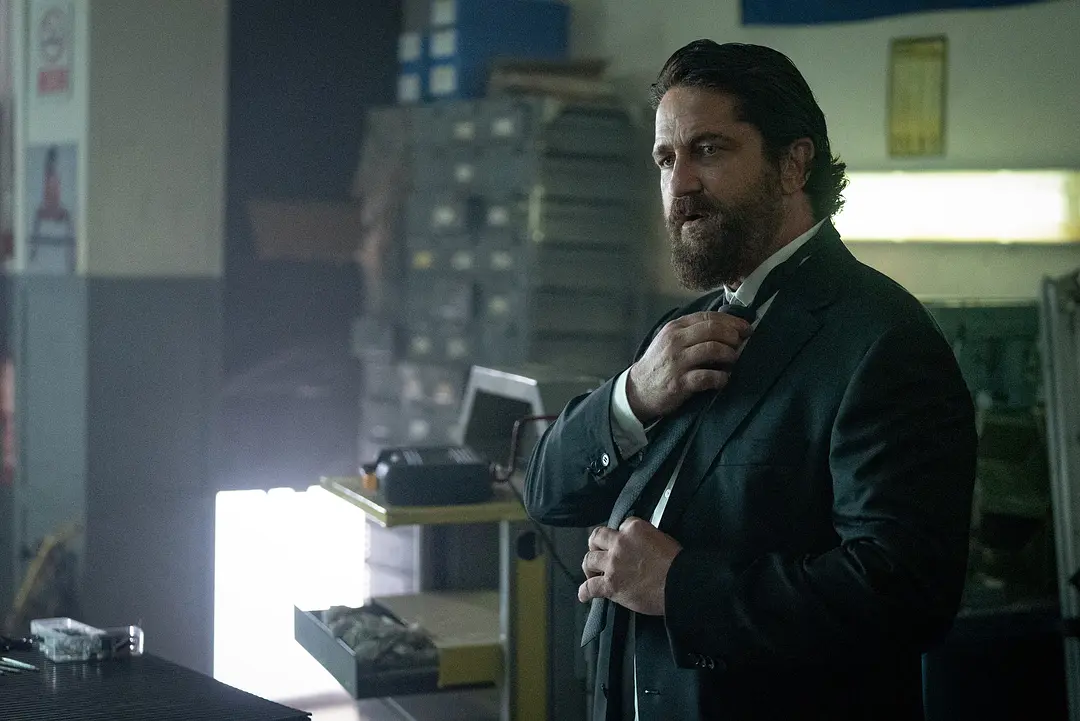A New Heist on the Global Stage
*Den of Thieves 2: Pantera* raises the stakes by relocating the story from Los Angeles to the heart of Europe, where Donnie (O’Shea Jackson Jr.), the clever mastermind from the first film, seeks to escape his past but instead finds himself pulled into an even more dangerous opportunity: a diamond theft of unprecedented scale planned by the infamous Pantera gang. Their target—the world’s largest diamond exchange—creates a spectacle of strategy, betrayal, and ruthless ambition that immediately establishes the film’s global tone. Lavish cityscapes, crowded marketplaces, narrow alleyways and high-security institutions contrast with the gritty streets of the original, giving the sequel a broader canvas for both thieves and law enforcers. By expanding the scope the film positions itself as both continuation and evolution of the franchise, promising the kind of international crime saga that echoes great heist pictures while delivering fresh, large-scale stakes and cinematic set pieces.
 Crime, Pursuit, and Fragile Alliances
Crime, Pursuit, and Fragile Alliances
Detective Nick (Gerard Butler), still haunted by his failure to stop Donnie, follows him to Europe driven by a mixture of vengeance and obsession that blurs the line between professional duty and personal vendetta; his determination pushes him beyond jurisdiction and toward choices that test his morality. Meanwhile Donnie must navigate a treacherous underworld where alliances are temporary, partners double-cross and every decision carries mortal risk. When circumstances force Donnie and Nick into an uneasy partnership, the film flips the cat-and-mouse dynamic of the first installment into something more unpredictable and layered: survival and success now depend on their ability to cooperate despite mutual distrust. As they face rival gangs, the cunning Pantera crew, and shifting loyalties, the narrative sustains tension not just around whether the heist will succeed, but whether either man can truly trust the other when greed, pride, and revenge are constantly at play.
 Character Tension and Cinematic Style
Character Tension and Cinematic Style
At its core the movie thrives on the clash between Donnie and Nick: Donnie is calculated, composed and adaptable—a planner who can improvise under pressure—while Nick is driven, abrasive and obsessive, guided by a personal code that mixes justice with pride; their forced cooperation reveals surprising layers in both men, exposing Donnie’s unexpected loyalty beneath a criminal exterior and Nick’s vulnerabilities behind a tough façade. Visually the film delivers slick, high-octane action across a variety of European backdrops—chase sequences through narrow streets, tense negotiations in underground clubs, meticulously staged infiltrations of glittering diamond halls and shootouts in crowded public spaces—each set piece choreographed with attention to both adrenaline and tactical detail. The cinematography contrasts polished urban elegance with raw underworld grit, and tight editing combined with dynamic sound design keeps the pace relentless, giving weight and consequence to each confrontation. The result is a film that balances spectacle with character-driven stakes, where the aesthetic of luxury and danger amplifies the moral and psychological conflicts on screen.
 Themes of Loyalty, Revenge, and Risk
Themes of Loyalty, Revenge, and Risk
Beyond action the sequel digs into themes of loyalty, betrayal and the corrosive nature of revenge: characters must constantly choose between self-preservation and tenuous commitments to others, and the Pantera gang embodies the moral ambiguity at the film’s center—ruthless yet governed by their own code—serving as both formidable adversaries and mirrors to the protagonists’ flaws. Nick’s pursuit of Donnie becomes increasingly personal and illustrates how obsession can erode professional judgment, while Donnie is forced to weigh the risk of one more life-defining heist against the possibility of a future beyond crime. The film suggests that in this world trust is the most valuable and most dangerous currency, and every victory carries a price; for fans, *Den of Thieves 2: Pantera* expands the series’ emotional and moral complexity, making it not only a showcase of elaborate heists and action but also an exploration of the psychological cost of living where betrayal is always a step away.





